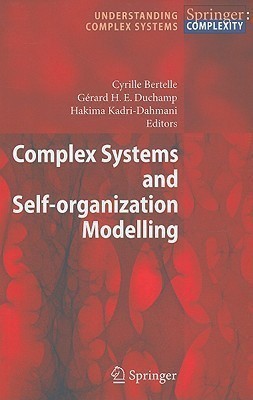Complex Systems and Self-organization Modelling(English, Hardcover, unknown)
Quick Overview
Product Price Comparison
Theconcernofthisbookistheuseofemergentcomputingandself-organization modellingwithinvariousapplicationsofcomplexsystems. Wefocusouratt- tion both on the innovative concepts and implementations in order to model self-organizations, but also on the relevant applicative domains in which they can be used e?ciently. First part deals with general modelling and methodology as conceptual - proaches for complex systems description. An introductive chapter by Michel Cotsaftis entitled "A Passage to Complex Systems", treats the notion of "Complex Systems" in opposition to that of a "Complicated System". This can be, he claims, comprehended immediately from the latin roots as "C- plex" comes from "cum plexus" (tied up with) whereas "complicated" ori- natesfrom"cumpliare"(piledupwith). Thepaperisawideandrichdisser- tion with elements of history (of the technical developement of mankind) with its recents steps : mechanist, quantum and relativistic points of view. Then, the need for a "passage" is illustrated by the discussion, with tools borrowed from functional analysis, of a typical parametric di?erential system.The last and conclusive parts give tracks for the study of Complex Systems, in parti- lar one can hope to pass to quantitative study and control of complex systems even if one has to consent a "larger intelligence delegation" to them (as - nounced in the introduction) by using and developing tools already present in dissipative Physics and in Mathematical functional analysis and ?xed point theorems, for instance. This "passage" is followed by a wide bibliography of more than 90 entries. The (non hasty) reader is invited to read this deep and far reaching account before browsing through the book.


